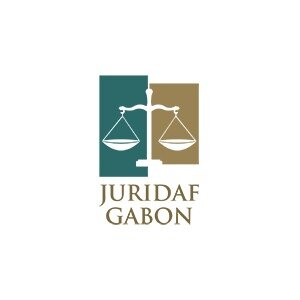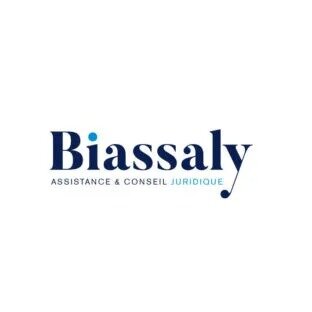Best Bankruptcy & Debt Lawyers in Libreville
Share your needs with us, get contacted by law firms.
Free. Takes 2 min.
List of the best lawyers in Libreville, Gabon
About Bankruptcy & Debt Law in Libreville, Gabon
Bankruptcy and debt law in Libreville, Gabon, is designed to address financial crises faced by individuals and businesses. The legal framework provides mechanisms for debtors to either discharge or reorganize their debts. The laws aim to protect both creditors' rights and debtors' ability to obtain a fresh start. The legal process involves either liquidation, where assets are sold to pay off debts, or reorganization, which allows debtors to restructure their financial obligations under court supervision. The procedures are codified under Gabon’s commercial law, and the courts play a vital role in adjudicating these matters.
Why You May Need a Lawyer
Engaging a lawyer when dealing with bankruptcy and debt issues is crucial for numerous reasons:
- Complex Legal Procedures: The bankruptcy process involves complex procedures and legal technicalities. Lawyers can navigate these intricacies effectively.
- Debt Negotiation: Attorneys can negotiate with creditors to potentially reduce the amount of debt or secure more favorable repayment terms.
- Asset Protection: Legal counsel is essential for understanding which assets are protected under bankruptcy laws and which can be liquidated.
- Court Representation: In case of disputes, having legal representation is critical during court proceedings.
- Avoiding Pitfalls: Legal professionals help prevent common pitfalls such as failing to disclose assets or misfiling documents, which can lead to severe penalties.
Local Laws Overview
In Libreville, Gabon's approach to bankruptcy is shaped by a set of legal principles aimed at balancing the interests of creditors and debtors. Key aspects include:
- Types of Bankruptcies: Gabonese law accommodates both involuntary and voluntary bankruptcies. Individuals and businesses can file for protection based on their insolvency status.
- Judicial Management: For some business entities, judicial management allows for reorganization under court supervision.
- Creditor Meetings: Creditors have the right to convene meetings to discuss the debtor's financial status and formulate a repayment plan.
- Asset Liquidation: The law outlines specific procedures for the valuation and liquidation of a debtor's assets.
- Debt Discharge: Certain debts may be discharged upon successful completion of the bankruptcy process, providing debtors with relief from their obligations.
Frequently Asked Questions
What is bankruptcy?
Bankruptcy is a legal process that provides relief to individuals or businesses unable to pay their debts. It can result in the discharge of debts or a structured repayment plan.
Who can file for bankruptcy in Libreville, Gabon?
Both individuals and businesses facing insolvency can file for bankruptcy. The debtor must demonstrate an inability to meet their financial obligations as they come due.
How long does the bankruptcy process take?
The duration depends on the complexity of the case and the type of bankruptcy filed. Simple cases might conclude within a few months, while complex business reorganizations can take several years.
Will I lose all my property if I declare bankruptcy?
Not necessarily. Specific assets might be exempt from liquidation under the law. A lawyer can help determine which assets are protected.
Can bankruptcy eliminate all types of debt?
No, some debts are non-dischargeable, including certain taxes, student loans, and child support obligations.
Is it possible to stop creditor harassment?
Yes, once a bankruptcy case is filed, an automatic stay goes into effect, halting most collection activities by creditors.
How will bankruptcy affect my credit score?
Bankruptcy can have a significant negative impact on your credit score, remaining on your credit report for several years.
Can I file for bankruptcy without a lawyer?
While it's possible, it's not recommended due to the complexity and legal nuances involved in the process.
What happens to co-signers if I file for bankruptcy?
Co-signers may still be obligated to fulfill the debt unless specific arrangements are made in the bankruptcy plan.
What is the difference between liquidation and reorganization bankruptcy?
Liquidation involves selling the debtor's assets to pay creditors, while reorganization allows the debtor to keep their assets and repay debts under a court-approved plan.
Additional Resources
Several resources and organizations can assist individuals dealing with bankruptcy and debt in Libreville, Gabon:
- Gabon Bar Association: Provides consultation and can recommend qualified lawyers specializing in bankruptcy and debt.
- Commercial Court of Libreville: Handles bankruptcy filings and offers resources for understanding court procedures.
- National Credit and Debt Management Agency: Offers financial counseling and debt management advice to individuals struggling with debt.
Next Steps
If you find yourself in a situation requiring legal assistance with bankruptcy or debt, consider taking the following steps:
- Consult a Lawyer: Seek an initial consultation with a lawyer specializing in bankruptcy who can guide you on your best legal options.
- Gather Financial Documents: Organize all relevant financial records, including debts, assets, income statements, and any correspondence with creditors.
- Explore Alternatives: Discuss with your lawyer whether alternatives to bankruptcy, such as debt negotiation or settlement, are possible in your case.
- Understand Your Rights: Familiarize yourself with your legal rights and responsibilities under Gabonese bankruptcy law to make informed decisions.
By taking these steps, you can feel more confident and prepared as you address your financial situation and seek the resolution that aligns best with your circumstances.
Lawzana helps you find the best lawyers and law firms in Libreville through a curated and pre-screened list of qualified legal professionals. Our platform offers rankings and detailed profiles of attorneys and law firms, allowing you to compare based on practice areas, including Bankruptcy & Debt, experience, and client feedback.
Each profile includes a description of the firm's areas of practice, client reviews, team members and partners, year of establishment, spoken languages, office locations, contact information, social media presence, and any published articles or resources. Most firms on our platform speak English and are experienced in both local and international legal matters.
Get a quote from top-rated law firms in Libreville, Gabon — quickly, securely, and without unnecessary hassle.
Disclaimer:
The information provided on this page is for general informational purposes only and does not constitute legal advice. While we strive to ensure the accuracy and relevance of the content, legal information may change over time, and interpretations of the law can vary. You should always consult with a qualified legal professional for advice specific to your situation.
We disclaim all liability for actions taken or not taken based on the content of this page. If you believe any information is incorrect or outdated, please contact us, and we will review and update it where appropriate.
Browse bankruptcy & debt law firms by service in Libreville, Gabon
Libreville, Gabon Attorneys in related practice areas.









